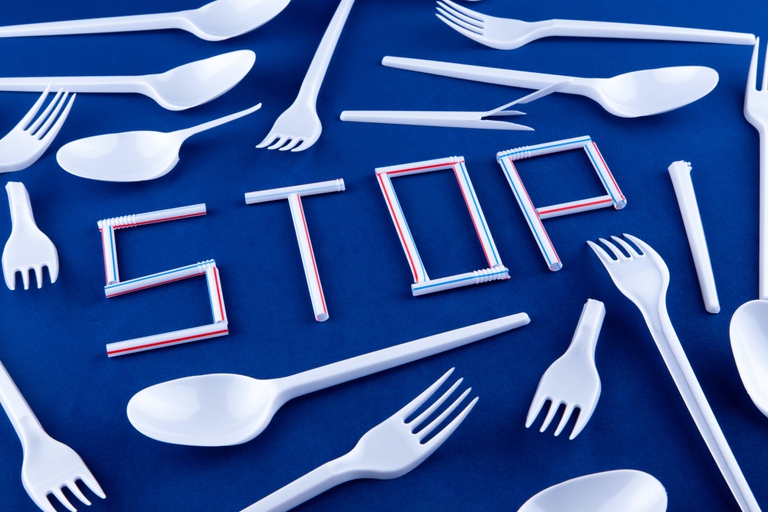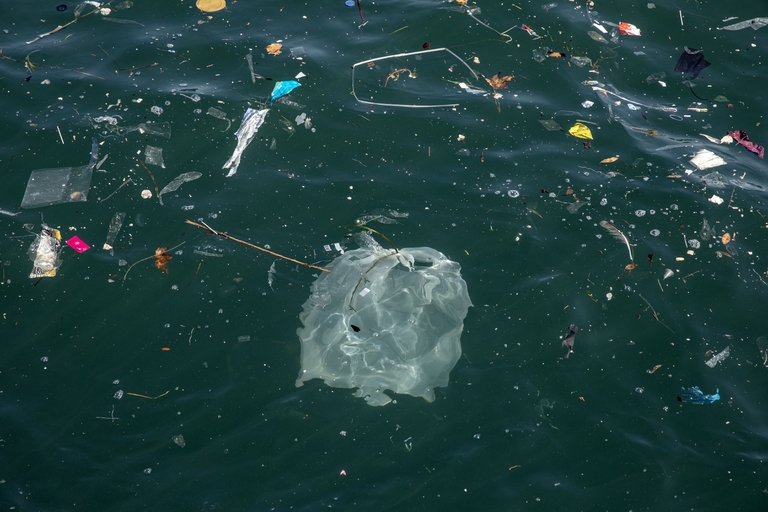
Nicole Menemene founded Plastycor to help fight plastic pollution, inspiring women and young people to join the cause and protect the environment.
A single-use plastics ban, prohibiting the sale of some single-use plastic products, was announced on 14 January 2023 by the UK Environment secretary.
A single-use plastics ban was announced on 14 January 2023 by the UK Environment secretary Thérèse Coffey. Said ban will come into force from October 2023, giving businesses time to prepare ahead of its introduction.
We all know the absolutely devastating impacts that plastic can have on our environment and wildlife. We have listened to the public and these new single-use plastics bans will continue our vital work to protect the environment for future generations.
This ban applies to some single-use plastics products, specifically single-use plastic plates, trays, bowls, cutlery, balloon sticks, and certain types of polystyrene cups and food containers. Once the ban comes into force in October, the English public won’t be able to purchase the banned goods from businesses, including food vendors, retailers, takeaways, and the hospitality industry.
The ban will not apply to plates, trays, and bowls that function as the packaging of shelf-ready pre-packaged food items, which the government will include in its plans for an Extended Producer Responsibility Scheme. According to the UK government, more than 95 per cent of the government consultation’s responders favoured the bans.
The European Parliament and the Council of the European Union have already introduced a ban on single-use plastics. This ban applies to balloon sticks, cotton buds, cutlery, straws, plates, as well as beverage and food containers made of expanded polystyrene, and all products made of oxo-degradable plastic. It has been in force since 3 July 2021. Restrictions on the supply of plastic-stemmed cotton buds, plastic straws, and stirrers came into force in England on 1 October 2020.
A similar ban on single-use plastic products, including plastic beverage stirrers, cups, and lids made of expanded polystyrene, plastic cutlery, food containers made of expanded polystyrene, and plastic plates, has been effective in Scotland since 12 August 2022. Another related bill was also introduced in Wales (Environmental protection – Single-use plastic products) on 20 September 2022 and passed by the Senedd Cymru, the Welsh parliament, on 6 December.
According to estimates shared by the UK government, 2.7 billion items of single-use cutlery and 721 million single-use plates are used in England every year, most of which are made of plastic. Once disposed of, only 10 per cent of these articles get recycled. These numbers are part of a broader phenomenon, with at least 14 million of the 300 million tons of plastic produced worldwide each year making their way into the ocean. Unsurprisingly, plastic is the most commonly found form of marine litter, making up 80 per cent of all marine debris.
We are in full support of this announcement by Defra, which marks important progress in the wholesale removal of problematic and unnecessary plastics that can end up as plastic pollution. WRAP is working with UK businesses to meet ambitious targets in this important area, and our latest results show an 84% reduction in problematic and unnecessary single-use plastics by our UK Plastics Pact members since 2018.
Once they enter oceans and seas, plastic objects start a slow breakdown process, turning into microplastics. These are then ingested by marine species such as birds, seals, whales, and sea turtles. Fishes and shellfishes also consume them, and microplastics enter the human food chain through them.
Siamo anche su WhatsApp. Segui il canale ufficiale LifeGate per restare aggiornata, aggiornato sulle ultime notizie e sulle nostre attività.
![]()
Quest'opera è distribuita con Licenza Creative Commons Attribuzione - Non commerciale - Non opere derivate 4.0 Internazionale.
Nicole Menemene founded Plastycor to help fight plastic pollution, inspiring women and young people to join the cause and protect the environment.
A lack of transparency in the fashion supply chains favours labour rights violations and environmental damage. Fashion Revolution is trying to change this.
Plastic pollution is airborne too. Microplastics are being carried across continents by the wind, as a recent study reveals.
In Australia, more and more platypuses are getting caught in plastic waste. Efforts to protect this species need to be increased.
The European Union has made a bold decision in banning certain single-use plastic products. But this is just the first step in a long journey.
Molecules that eat up plastic waste, including PET bottles, may soon become widely used as scientists leap ahead in developing new super enzymes.
A Magellanic penguin was found lifeless on a Brazilian beach: in its stomach, an N95 face mask. Researchers believe the animal died from ingesting it.
Single-use face masks and gloves used as protection from the coronavirus have been found on the shores and in the waters of major European rivers.
After returning to shore last January due to a fault, the floating barrier has set sail towards the Pacific Trash Vortex once again with the aim of removing the largest plastic island floating in the ocean.









